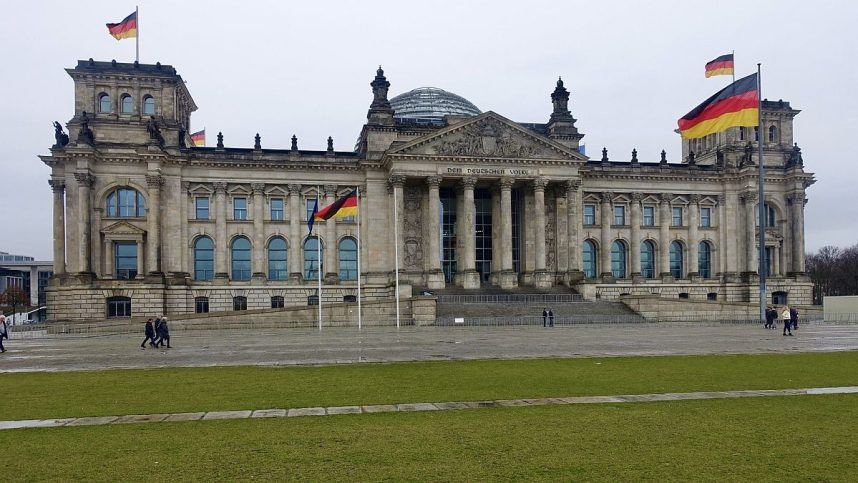Posted on: July 20, 2023, 07:44h.
Last updated on: July 20, 2023, 07:49h.
Administrative courts in Germany are showing that local legislation is not overridden by European Union (EU) laws. Two courts, one in Berlin and another in Düsseldorf, have dismissed claims made by gambling operators, who argued that local laws violate established EU protocols.

In both cases, the dispute revolved around the required distance between gaming properties. Although the plaintiffs in the lawsuits were not identified, the outcome applies to the entire gaming industry.
This is not the first time a gambling operator has claimed that German laws infringe upon EU laws. However, both courts have made it clear that the country’s legal system will abide by its own rules.
Berlin Holds Its Ground
The state of Berlin has established a minimum distance of 500 meters (1,640 feet) between sports betting agencies and existing gambling arcades, following the Fourth State Treaty on Gambling.
The State Office for Citizens and Regulatory Affairs (LABO) has rejected numerous applications from betting operators who sought to operate shops where the distance to existing gambling halls is less than the minimum requirement.
The operators have attempted to convince Berlin to change its stance by arguing that the permits granted to the gaming halls and the State Treaty on Gambling are valid. Additionally, they want LABO to grant them permits to operate betting agents.
Particularly, they argue that the minimum distances are not necessary for the protection of minors and players. They claim that these requirements are unconstitutional, contrary to European law, and place sportsbooks at a disadvantage compared to gaming halls that were already operational before the new laws came into effect.
There is also a restriction that no two betting shops can be within 2,000 meters (6,561 feet) of each other to prevent monopolization of a specific area. This restriction was also part of a legal battle initiated by two unidentified companies.
However, Berlin’s 4th Chamber of the Administrative Court dismissed all complaints, stating that Berlin has the right to establish its gaming regulations according to the treaty. The court also dismissed the actions for annulment of existing licenses as inadmissible because the betting operators lacked the necessary legal standing to request it.
Düsseldorf Echoes Berlin’s Position
In Düsseldorf, betting agencies must maintain a minimum distance of 350 meters (1,148 feet) from public schools and child and youth welfare facilities, in accordance with the latest federal gambling treaty.
Betting operators also fought against the state government here, but, like in Berlin, they failed to present a convincing argument.
In a separate announcement, the Administrative Court of Düsseldorf confirmed that the rights of betting operators and brokers are not as important as the rights of consumers. The operators cannot argue that the laws violate EU legislation or claim that they are unconstitutional. Like Berlin, Düsseldorf interprets the gaming treaty as allowing states to establish their own rules.
The operators can attempt an appeal, which would have to go to the Higher Administrative Court for the State of North Rhine-Westphalia in Münster. However, based on these rulings and others, it is unlikely that the case will proceed much further.
Gaming Regulator Commissions Research
With Germany’s new gambling treaty and regulator in place, the industry is eager to see how it fares. Online gaming and sports betting have only recently been introduced in the country, so an assessment is necessary.
The Joint Gaming Authority (GGL) has appointed Dr. Tobias Hayer of the University of Bremen’s Institute for Public Health and Nursing Research to lead a study to assess the situation. The research aims to evaluate the effectiveness of the treaty and responsible gambling solutions. The GGL has not provided a timeline for the research, but anticipates conducting a comprehensive evaluation of the treaty’s effectiveness in 2026.


